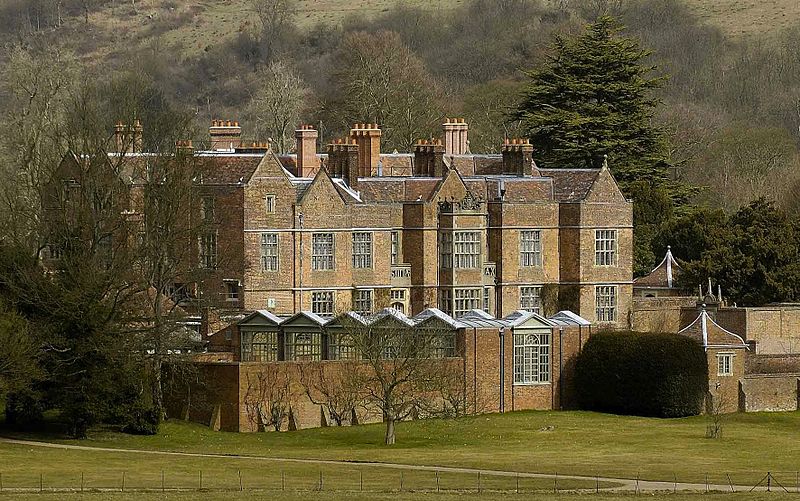
The Chequers proposal, explained
Government ministers locked themselves up in Theresa May's country home on Friday night to sort out the UK's position on Brexit.
The UK has eight months to leave the EU. Until Saturday, top government ministers were extremely divided on what kind of Ts and Cs they'd want to see on a Brexit agreement – which parts of being an EU member they'd want to keep, and which they'd want to get rid of.
After a 12 hour meeting in the prime minister's country home, they've made some decisions – with a few very important gaps, but some decisions at least.
The next hurdle is whether the EU is actually going to accept any of these proposals. David Davis, the guy whose whole job it was to negotiate the EU exit, thought it was so unlikely Brussels would accept their ideas he resigned after the meeting. (Which isn't helping Theresa May look very authoritative... but most other ministers are still on her side, for now.)
This is what they came up with.
In a response letter to David Davis' resignation, May summed up everything they'd decided this weekend in a bullet point list, published by the Guardian.
Here's what it says, explained:
-
- 'Leaving the EU on 29 March 2019'. Yes, we knew this.
-
- 'Ending free movement and taking back control of our borders'. EU citizens will no longer be able to come and go as they please: but there'll still be a way for people to apply to come to the UK as tourists, students, or workers. We don't know yet what the detail of that looks like.
-
- 'No more sending vast sums of money each year to the EU.' The UK won't pay into the EU budget anymore.
-
- 'A new business-friendly customs model with freedom to strike new trade deals around the world.' May doesn't want to be officially part of the 'customs union' anymore (where EU countries trade with other countries as one bloc) but she does want the UK to be treated like an EU country within it – i.e. trade with EU countries without extra taxes. Not sure how well this one's gonna go down in Brussels.
-
- 'A UK-EU free trade area with a common rulebook for industrial goods and agricultural products which will be good for jobs'. May's still happy to operate by EU regulations on most goods. Since the UK won't be paying into the EU, they won't play a part in setting those regulations – they'll effectively become a rule taker on whatever's agreed by existing members, which is really angering Brexiteers.
-
- 'A commitment to maintain high standards on consumer and employment rights, and the environment.' No specific pledges here but just a general promise that although the UK won't be part of European law, it'll make sure to keep its standards high (so the EU still lets it be part of some of the tax-free trade deals).
-
- 'A Parliamentary lock on new rules and regulations.' Parliament can challenge EU rules if it sees fit... but ultimately, they're in charge in legal terms when it comes to the UK being part of EU regulations.
-
- 'Leaving the Common Agricultural Policy and the Common Fisheries Policy.' The UK wants control of its waters, and doesn't want to be part of common pricing of agricultural goods... but still wants access to the EU market on favourable terms. Another tricky one.
-
- 'Restoring the supremacy of British courts by ending the jurisdiction of the European Court of Justice in the UK'. So the European courts won't be able to govern here, but they'll still govern the EU rules that the UK doesn't want to stop being part of.
-
- 'No hard border between Northern Ireland and Ireland, or between Northern Ireland and Great Britain'. May seems to feel like saying they're happy to follow EU rules on goods trade solves the Irish question. Others aren't so sure, largely because we've not yet seen a proper plan around immigration or services.
-
- 'Continued, close cooperation on security to keep our people safe. No details here, but part of why May is insistent on following some EU rules is to continue having access to EU security frameworks.
-
- 'An independent foreign and defence policy, working closely with our European allies'. No details here either, but similar principle to above – close enough to get the good stuff of being on the same side, not so close that we're not independent anymore.
It's a jam-packed doc... with lots of empty gaps.
The list raises about as many questions as it gives answers. Will the EU accept this idea of following EU rules but still setting its own trade policy? What is the new immigration policy? How are we dealing with 'services' (like banking, advertising, consulting)?
The government is writing a 'white paper' or official document to send the EU this week, and then the talks continue. Oh, and if it all goes haywire, they're also beginning to plan seriously for the prospect of no special agreement whatsoever. But more on that another time...



